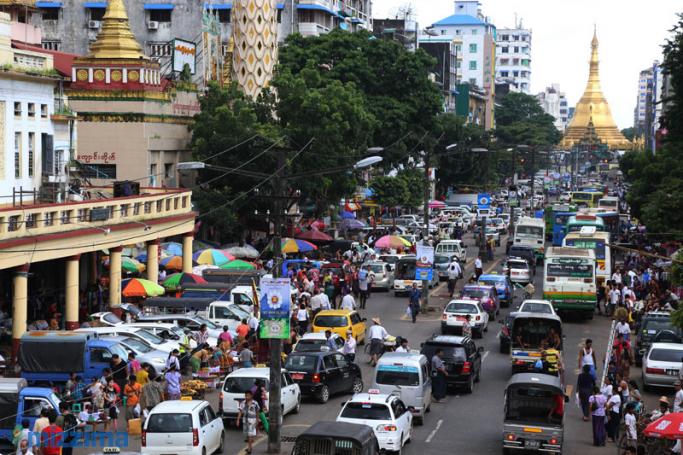Victory for Mynamar's Aung San Suu Kyi and her National League for Democracy party holds the hope of a new beginning for a nation that was choked for years under repressive military rule.
But tribulations lie ahead for the country's first civilian-led government in generations.
What are the nation’s key challenges?
Myanmar has not experienced a democratic transfer of power since the 1960s so the country is sailing into uncharted waters in modern times.
Burned into public memory is the bitter disappointment of the 1990 elections, which were won overwhelmingly by the NLD only to be ignored by the military, who clung to power for another two decades.
Suu Kyi's supporters are not taking a smooth transition for granted and expect a torrid period of political horse-trading before a new government takes power in March.
Who will lead?
Suu Kyi is a monumental figure in Myanmar's democracy movement.
Her years of house arrest and courageous stand against oppression have made her an international symbol of peaceful struggle for freedom.
For millions of Myanmar voters who flocked to the polls on Sunday she would be a natural choice for president.
But she is barred from the post by the constitution -- a legacy of the former junta that the military has resisted changing.
To circumvent this Suu Kyi has said she will rule "above the president", a legally uncertain position that she has not fleshed out in detail.
She will effectively choose a president as she controls the NLD which will in turn dominate parliament. Lawmakers will elect the head of state from three candidates selected by the lower house, the upper house and the military.
Suu Kyi, who could take on a prominent role like the parliament speaker, has also indicated that she will direct policy.
Managing the military
One of the most important aspects of this transition is easing the nerves of a still enormously powerful military.
As the daughter of the army's founding father and independence hero General Aung San, Suu Kyi has repeatedly said that she is very fond of the military.
She has made it very clear that she wants to slowly prize the army away from politics.
But she has also stressed she wants to build a government of "national reconciliation" and has no intention of pursuing revenge for the hardships meted out by the country's former junta kingpins.
And the friendly overtures are flowing both ways at the moment.
Both President Thein Sein -- a former junta prime minister -- and army chief Min Aung Hlaing have promised that they will respect the vote and have even gone so far as to congratulate Suu Kyi on her win.
Fixing a broken economy
Getting down to the business of government is crucial in a nation burdened with deep poverty after years of neglect under the army.
International investors are clamouring to get a slice of Asia's next emerging market, with its 51 million potential customers.
But industrialisation needs roads, rail and functioning electricity -- all of which are sorely lacking.
While the challenges are staggering, Myanmar has rich natural resources as well as a key strategic location between China and India.
Taming ethnic rebellions
Conflict has tormented Myanmar's ethnic minority borderlands for more than half a century.
A much vaunted peace process under Thein Sein's quasi-civilian rule has made some progress, signing up a clutch of armed groups to a broad ceasefire seen as a stepping stone to political dialogue.
But fighting in northern Shan and Kachin states continues to rage.
A Suu Kyi government comes with a strong mandate of votes from ethnic constituencies -- but ethnic armed groups are likely to be wary that a deal with her government may not be honoured by the army.
Myanmar is also facing the pernicious rise of hard-line Buddhist nationalists who have helped to stir anti-Muslim bloodshed in recent years, which has hit the Rohingya minority hardest.
© AFP
You are viewing the old site.
Please update your bookmark to https://eng.mizzima.com.
Mizzima Weekly Magazine Issue...
14 December 2023
Spring Revolution Daily News f...
13 December 2023
New UK Burma sanctions welcome...
13 December 2023
Spring Revolution Daily News f...
12 December 2023
Spring Revolution Daily News f...
11 December 2023
Spring Revolution Daily News f...
08 December 2023
Spring Revolution Daily News f...
07 December 2023
Diaspora journalists increasin...
07 December 2023
China premier warns 2023 growth target 'no easy task'












